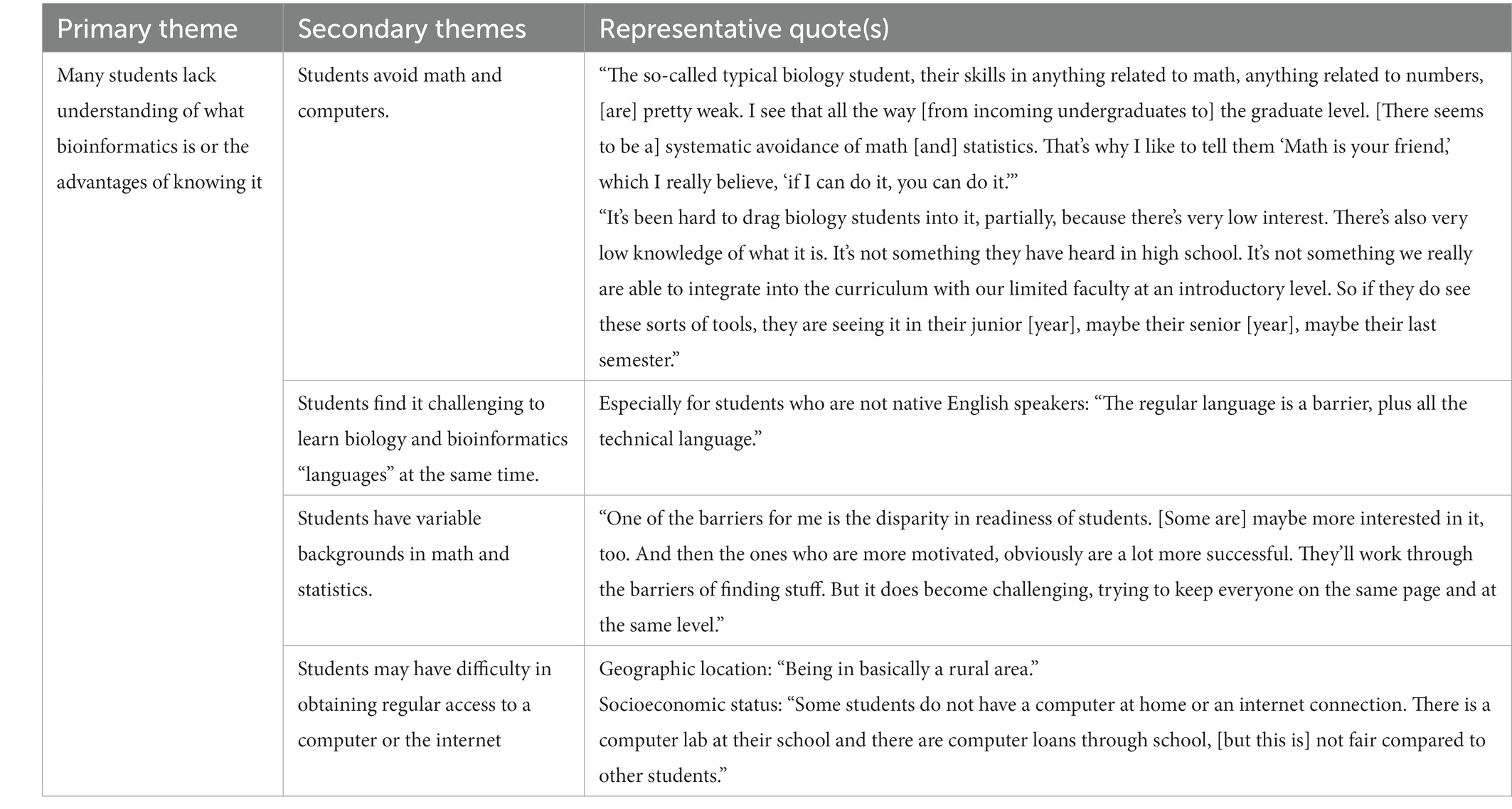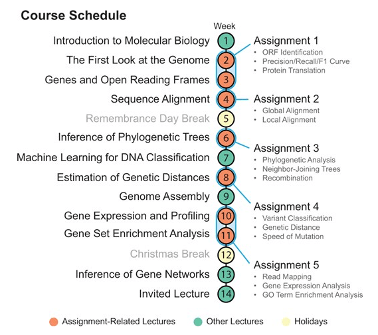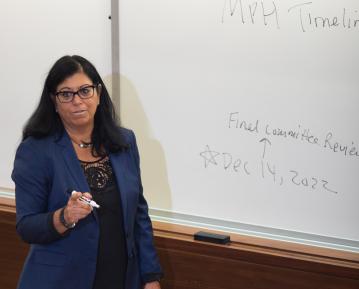More About Bioinformatics Tutor
More About Bioinformatics Tutor
Blog Article
Bioinformatics Tutor for Dummies
Table of ContentsAbout Bioinformatics TutorThe 9-Second Trick For Bioinformatics TutorSome Known Details About Bioinformatics Tutor Rumored Buzz on Bioinformatics TutorThe 2-Minute Rule for Bioinformatics Tutor
Initial task growth is fairly lengthy, as it includes cautious planning of the subject, structuring of deliverables, and consideration of the skills and experience levels of individuals. When a task has actually been plainly specified and implemented, it has the possible to be reused in future sessions with only small modifications to mirror updates in the field or suit distinctions in participant histories. This makes project-based learning a reliable and lasting mentor strategy in the long run, particularly in swiftly advancing self-controls like bioinformatics.To ensure connection and reproducibility of knowing, providing shared laboratory note pads-- either physical or digital-- is important. These note pads work as joint logs where students can record their progress, code, techniques, and results throughout the training course. Not only do they reinforce understanding by urging documentation and reflection, yet they additionally work as post-course reference materials that participants can seek advice from in future study or academic projects.
Advisors play an important duty in the success of project-based training courses. Advisors additionally act as duty designs and motivate pupils to proceed seeking professions in computational biology and relevant areas.
Bioinformatics Tutor Can Be Fun For Anyone
An additional secret aspect of the discovering process is giving individuals the possibility to offer their job to others, particularly to a target market past their immediate task group. Final discussions or mini-conferences enable pupils to express their findings, receive constructive feedback, and gain self-confidence in interacting scientific material. This discussion part is frequently a favorite amongst pupils, as it confirms their efforts and highlights the real-world relevance of their job.
Each iteration of the program was fine-tuned based on participant comments and evolving finest practices in rearing. Bioinformatics Tutor. These adjustments guaranteed that the core goals-- hands-on knowing, partnership, and applied analytic-- remained undamaged while expanding the depth and breadth of topics covered.
A noteworthy visualization that caught participant sentiment was a word cloud generated from actions to the 2014 end-of-course survey. Participants were asked, "What was the very best component of the training course?" and their reactions were put together into a graphical word cloud. In this depiction, the dimension of each word indicates just how often it was discussed, with words like "hands-on," "partnership," "real-life troubles," "assistance," and "interactive" showing up most plainly. This visual responses enhanced the program's emphasis on experiential knowing and mentor assistance.
The contributions of people such as Rustici, G., Orchard, S., Cowley, A., and Twells, R., in addition to other members of the EBI user-training-working team, contributed in fine-tuning the training course structure and web content. Their understandings helped shape a inclusive and flexible model that can be adapted to different institutional and local contexts.
The Basic Principles Of Bioinformatics Tutor

Jones, Rasmussen, and Moffitt (1997) likewise promoted for interdisciplinary knowing with joint job job, noting its capability to replicate expert environments and prepare students for future scholastic or industry roles. In a detailed review, Thomas helpful site (2000) assessed multiple research studies on PBL and ended that students not just perform well academically but likewise create a much deeper understanding of the subject and boosted team effort abilities.
In the context of bioinformatics education and learning, cutting-edge methods like class video games and simulation-based training have also been utilized. Schneider and Jimenez (2013) presented the use of interactive games to instruct organic information integration, making it possible for trainees to comprehend intricate ideas with experiential understanding. This type of gamification matches the hands-on understanding stressed in project-based training courses by presenting an aspect of fun and competition, additional hints which can even more improve involvement.
Returning to the training course talked about here, the lessons found out from the execution of project-based knowing in a bioinformatics setting have more comprehensive implications for other STEM fields. The approach highlights not simply technical proficiency, but likewise interaction, partnership, and critical reasoning-- abilities that are increasingly valued in both academia and industry.
The Definitive Guide to Bioinformatics Tutor
The scalability of the course style also makes it a feasible model for other institutions. With proper modification based upon regional needs, available sources, and individual accounts, the framework can be duplicated or adjusted for usage in various other clinical domain names. In addition, the inclusion of organized mentorship and assessment techniques aids make sure constant quality and quantifiable learning results.

Finally, project-based company website knowing in bioinformatics uses a powerful technique to training complex, interdisciplinary content in a manner that is both accessible and intellectually promoting. By stressing cooperation, sensible application, and important questions, such campaigns not just enhance specific understanding but additionally add to the farming of a brand-new generation of cutting-edge and knowledgeable scientists.
The Single Strategy To Use For Bioinformatics Tutor

One more secret aspect of the discovering process is giving participants the opportunity to provide their job to others, specifically to a target market past their prompt task group.In the broader academic literary works, project-based learning (PBL) has actually been extensively examined and verified as an effective technique for advertising deep understanding, crucial thinking, and transferable skills. Adderley et al. (1975) emphasized the worth of project methods in greater education and learning, noting that they advertise energetic discovering and autonomy. Schneider and Jimenez (2013) introduced the use of interactive games to teach organic information combination, allowing students to realize complicated principles through experiential discovering.
Report this page